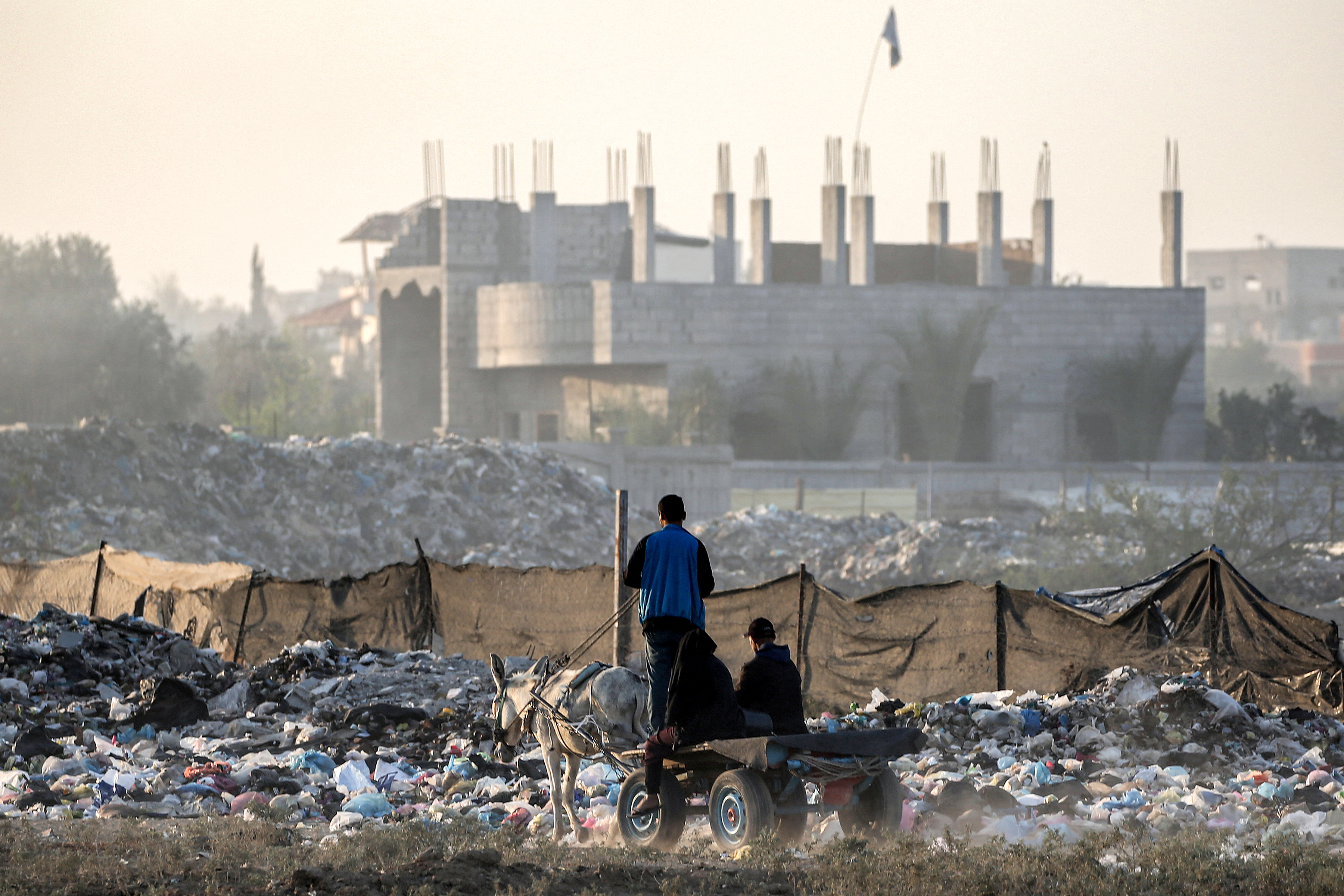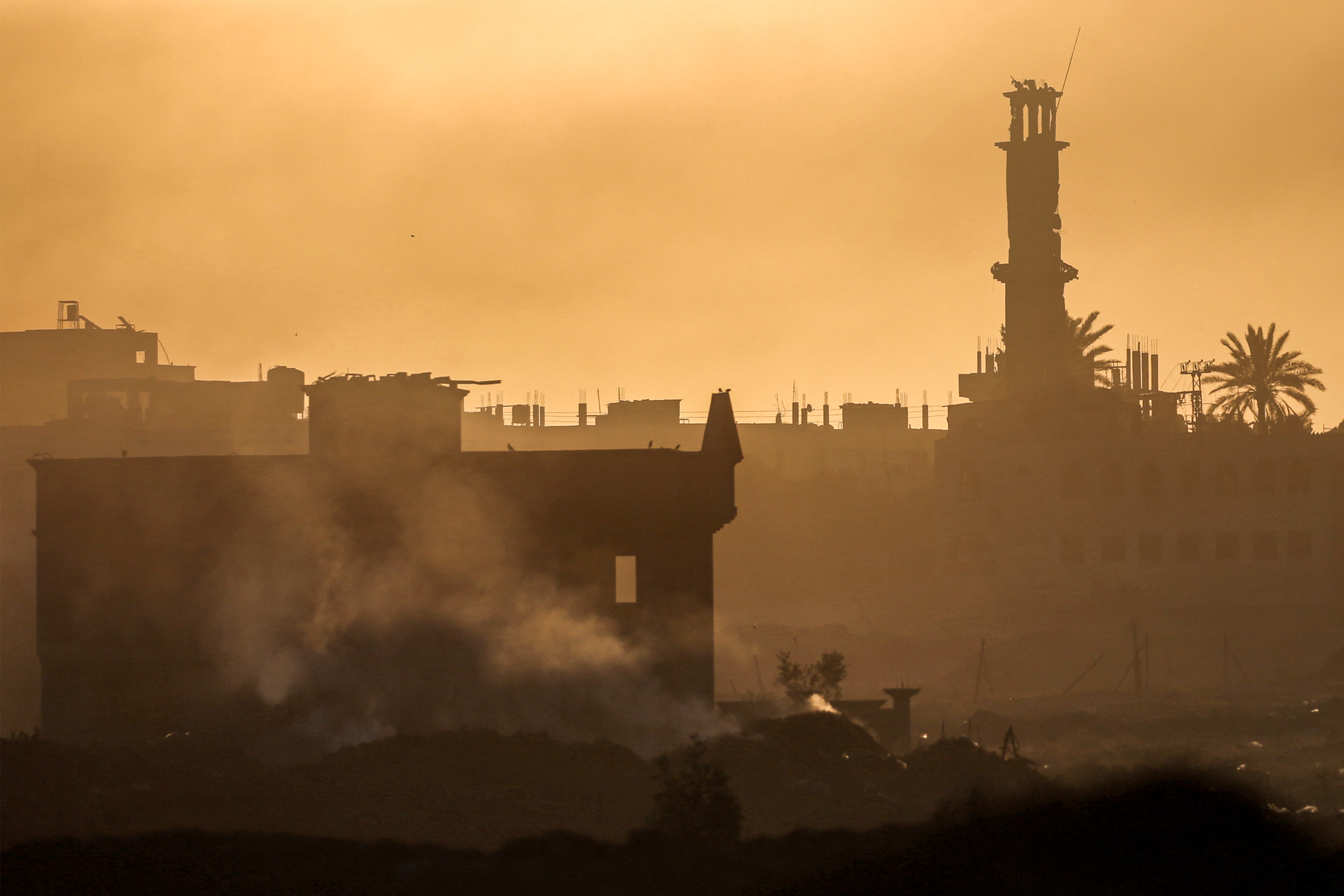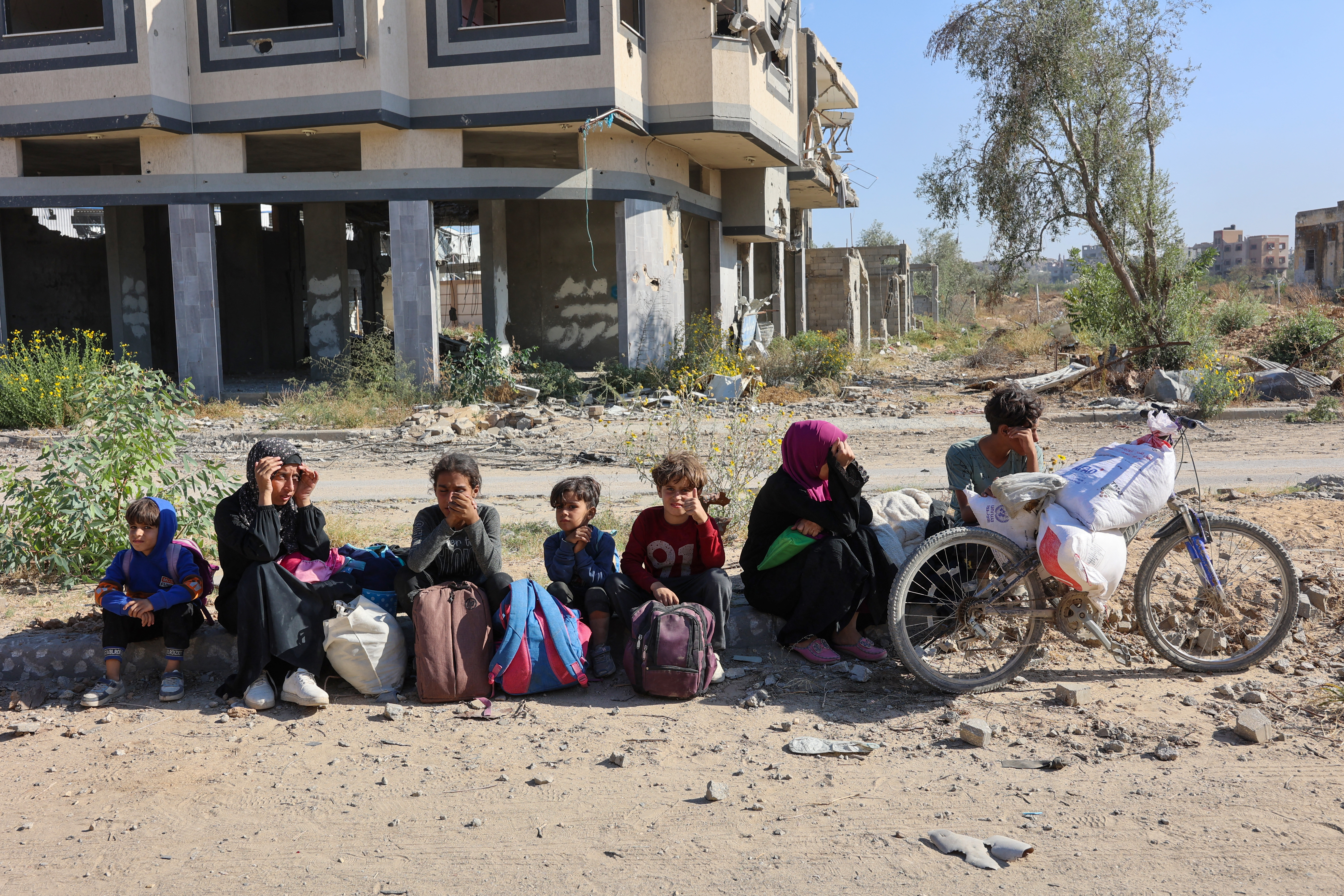Countries demand international action against Tel Aviv as catastrophes worsen in Gaza and Lebanon

In its strongest statement yet, the Arab League (AL) has demanded more punitive measures against Israel for its "crimes of genocide, forced displacement, and ethnic cleansing against the Palestinian people", as massacres and bombardment continued in Gaza and Lebanon.
The AL also criticized the United States for continuing to provide military support to Israel and urged the enforcement of sanctions against Israel, citing previous AL summits and ministerial decisions.
The statement, released after an emergency session held in Cairo, Egypt, on Oct 22, also pushed for coordinated Arab and international efforts to end Israeli brutality.
It called for measures including suspending Israel's participation in the United Nations General Assembly and supporting the genocide lawsuit against Israel at the International Court of Justice and International Criminal Court.
The statement came as US Secretary of State Antony Blinken visited the region to push for a truce amid fears that the Israeli military forces were systematically depopulating north Gaza and bringing more destruction to Lebanon, as seen in recent weeks.
ALSO READ: Israeli PM: Sinwar's death could aid hostage release, war goals
Before departing for Saudi Arabia from Israel, Blinken urged Tel Aviv to seize the opportunity to reach a longer-term solution to the conflict and avoid greater escalation in response to Iran over Teheran’s retaliatory missile strike on Oct 1 for the recent assassinations of Hezbollah and Hamas leaders.
Israeli human rights group B’Tselem, based in Jerusalem, appealed to the world in a statement that it must “stop the ethnic cleansing of northern Gaza”.
“Without immediate, decisive action from the international community, without using every tool available — political, legal, economic — the mass killings in the northern Gaza Strip will continue, and the suffering of its besieged civilians will grow,” it said.
“All international bodies and institutions must act now to compel Israel to stop the war and end the carnage,” it added.

“Regional governments find themselves under mounting pressure as Israeli officials signal potential wider aggression across the region, with Iran mentioned as a possible next target. These developments threaten multiple domains, from economic stability to energy security,” Belal Alakhras, a political analyst and researcher at the University of Malaya in Malaysia, told China Daily.
“The current intensified genocidal campaign in northern Gaza, coupled with major military aggression in Lebanon, has led regional observers to question US commitment to de-escalation, particularly given the continuous flow of military support,” he added.
He also said the current events “mark a defining moment” where nations find themselves either directly affected or inevitably drawn in as the situation “expands without apparent restraint”. Despite Arab and regional diplomatic initiatives, concrete progress remains elusive.
“This apparent ineffectiveness of the world order and traditional diplomatic channels … suggests an opening for major non-Western powers to step forward,” said Alakhras.
ALSO READ: US boots on the ground in Israel demolishes international law
The head of the UN Palestine refugee agency, Philippe Lazzarini, appealed for an immediate truce in northern Gaza in a post on X, describing how “three weeks of non-stop bombardments” by Israeli forces have impacted the region.
He said their staff reported they could not find food, water, or medical care.
“The smell of death is everywhere as bodies are left lying on the roads or under the rubble. Missions to clear the bodies or provide humanitarian assistance are denied,” said Lazzarini.
“In northern Gaza, people are just waiting to die. They feel deserted, hopeless, and alone. They live from one hour to the next, fearing death at every second,” he added.
Lazzarini said an immediate truce to allow people safe passage to leave — even for a few hours — was “the bare minimum to save the lives of civilians who have nothing to do with this conflict”.

A new report, “Gaza War: Expected Socioeconomic Impacts on the State of Palestine”, released by the UN Economic and Social Commission for Western Asia (UNESCWA) on Oct 22, said the “impact of the year-long war in Gaza and escalations in the West Bank” has set development in the State of Palestine back by about 69 years.
Building on findings published in November and May, the report estimates that poverty in Palestine will rise to 74.3 percent in 2024, affecting 4.1 million people, including 2.61 million newly impoverished people.
“Our assessments serve to sound the alarm over the millions of lives that are being shattered and the decades of development efforts that are being wiped out,” said UNESCWA Executive Secretary Rola Dashti.
READ MORE: Analysts: Israel’s killing of Sinwar hardly helpful to Gaza truce
In Lebanon, an overnight attack on Oct 21 near Rafik Hariri University Hospital, the country’s biggest public health facility.
"I was horrified by the Israeli attack near the Rafiq Hariri University Hospital in a densely populated neighborhood of Beirut, which reportedly killed at least 18 people, including four children, and wounded 60 others," said the United Nations High Commissioner for Human Rights Volker Turk.
He called for "immediate and complete investigations" in this regard. Rescuers were still searching for survivors beneath the rubble.


